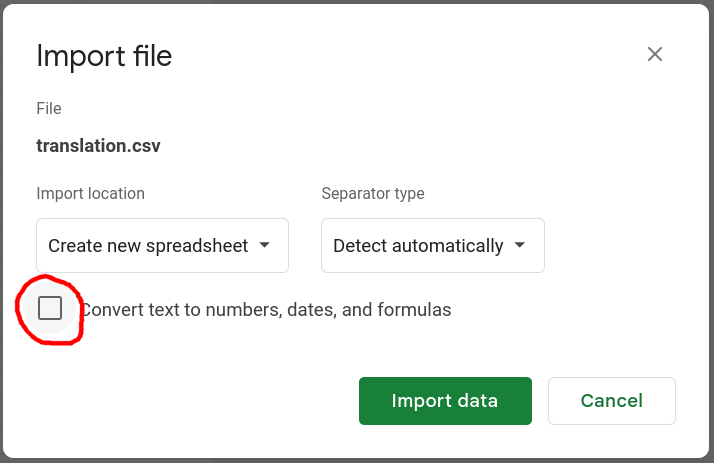A future home for translation-focused tools for the shin engine.
I've already made a few tools for this engine:
- shin - a reimplementation of the umineko version of shin engine and
sdu- a companion tool for extracting game data - ShinDataUtil - a comprehensive tool for extracting and repacking the game data
However, they target relatively modern versions of the engine (the former - switch's umineko, the latter - switch's higurashi).
The aim of this project is to provide tools that cover a wider range of versions.
As a starting point I'm targeting the "AstralAir no Shiroki Towa -White Eternity-" version of the engine.
Features
- Extraction and compilation of ROM files compatible with, AFAIK, all* versions of the engine
- Translation of the game script (SNR files). For now, only for
white-eternityversion of the engine, more to come
* except for PS2 versions, which embed rom files directly onto the disc
In the future I plan to implement more engine versions for the SNR translation tool, and maybe make a multi-version tool for working with graphics (PIC and TXA).
Installation
Binary release
Download a release from the releases page.
For Linux/macOS use the shell script installer. For Windows use either the powershell or msi installer.
From source
cargo install --path shin-tlShell completion
To enable shell completion, generate the completion script and source it in your shell
For linux shells:
shin-tl generate-completion bash > ~/.local/share/bash-completion/completions/shin-tl
shin-tl generate-completion zsh > ~/.local/share/zsh/site-functions/_shin-tl
shin-tl generate-completion fish > ~/.config/fish/completions/shin-tl.fishFor powershell:
shin-tl generate-completion powershell >> $PROFILEThen re-start the shell or source the generated file
Usage
Preparation
First of all, you would need the game files. How you obtain it differs by the platform.
On Switch, you would need to first dump the game with nxdumptool and then extract the romfs files with hactoolnet.
shin engine usually packages its files into one or two .rom files: data.rom and sometimes patch.rom. You would need to extract them first.
After you have obtained the rom files, shin-tl can already handle them
Extracting the rom files
To extract the rom files, use a command like this:
shin-tl rom extract <data.rom> <rom-dir>This will create the rom-dir directory and extract the rom files into it.
The game stores its data in multitude of formats. The ones that are the most interesting for translation are:
SNR- the game scriptPIC- pictures (mostly CGs)TXA- texture archives (mostly UI elements)FNT- fonts
As of now, shin-tl can only be used to translate the game script (SNR files).
Translating the SNR files
- Extract the strings
To extract strings from the snr file into a csv file, use a command like this:
shin-tl snr read <engine-version> <main.snr> <strings.csv>The format of the SNR files varies greatly with the engine version, and it does not contain any indicators as to which version it is. Thus, you need to supply the engine version to the tool.
As of now, only AstralAir no Shiroki Towa -White Eternity- is supported, so it should be white-eternity.
The strings.csv file will contain the extracted strings. It can be edited with a spreadsheet editor like Excel or LibreOffice Calc.
Here's how it will look like:
index,offset,source,source_subindex,s,translated
<...>
53,0x00037e62,saveinfo,0,共通ルート,
54,0x00037e71,saveinfo,0,プロローグ,
55,0x00037f15,msgset,1,@rここは自由に駆け回れる庭だった。,
56,0x00037f3a,msgset,2,@r好きに生きることを許された世界だった。,
57,0x00037f62,msgset,3,@rそれ以上に求めるものはない。,
58,0x00037f82,msgset,4,@rやわらかい雪の上に、想うだけ足跡をつけたなら、この心は簡単に満たされる。,
<...>
The index column is used to later inject the translated strings back into the SNR file, while offset, source and source_subindex provide information about where the string comes from.
If you are using a spreadsheet editor, take care to avoid conversion of the columns to numbers, as it will break the tool.
In case of Google Spreadsheets, make sure to uncheck the "Convert text to numbers, dates and formulas" option when importing the csv:
- Inject the translated strings back
Create a translation csv by either putting your translation into the translated column, or modifying the s column directly. The translated column will take precedence over the s column.
To inject the translated strings back into the snr file, use a command like this:
shin-tl snr rewrite <engine-version> <main.snr> <translation.csv> <main_translated.snr>This will read the translation csv, replace the strings in the snr file and write the result to main_translated.snr.
Rebuild the rom file
After touching all the files you wanted to translate, you would need to package them back into a .rom file.
All games I saw so far load the patch.rom file on top of data.rom (even if in original distribution there's no patch.rom). It also tends to be smaller, so you almost definitely want to put your translated files into patch.rom.
To rebuild the rom file, use a command like this:
shin-tl rom create --rom-version <rom-or-game-version> <rom-dir> <patch.rom> This will package all files and directories inside rom-dir into a patch.rom file.
Note that the rom format varies from game to game, so you need to supply either the rom format (rom1-v2-1, rom2-v1-0 or rom2-v1-1) or the engine version to the tool. You can see the correspondence in this spreadsheet.
After that, you can put the patch.rom file back into the game (however it is done on the platform you are working with).
On Switch you would use LayeredFS mods to do that.
Alternatives
There are alternatives to this project, which support different versions of the engine:
- ShinDataUtil (by me) has full support for (almost?) all formats used by switch's Higurashi Hou and Konosuba
- sdu (also by me) has support for extraction (but not creation) of most formats used by switch's Umineko
- enter_extractor (by 07th-mod) has support for extraction and patching of most formats across several versions of the engine
- kaleido (by Neurochitin) has support for scenario translation of vita's umineko and vita and switch's Kaleido
License
Licensed under Mozilla Public License 2.0. See LICENSE for more information.
